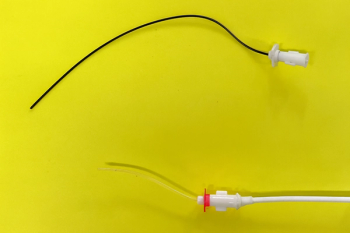
Gene mutation to blame for bladder stones in Dalmatians
Davis, Calif. -- A team of researchers at the University of California, Davis, School of Veterinary Medicine say a gene mutation is responsible for high levels of uric acid, and sometimes bladder stones, in Dalmatians.
Davis, Calif.
-- A team of researchers at the University of California, Davis, School of Veterinary Medicine say a gene mutation is responsible for high levels of uric acid, and sometimes bladder stones, in Dalmatians.
The defect has been widely reported, but, now that it has been identified, can be prevented, according to the university. Researchers say the trait can be removed by cross-breeding Dalmatians with the normal offspring of the original Dalmatian-pointer breeding that occurred in the 1970s.
Most dog breeds don't produce uric acid, according to the study, which discovered production also occurred in some bulldogs and black Russian terriers. All the Dalmatians studied, however, carried the SLC2A9 gene, which has been found to regulate uric acid levels in humans.
The study at UC-Davis was funded by the Morris Animal Foundation and the National Institute of Diabetes and Digestive and Kidney Diseases. It was published Nov. 7 in the Public Library of Science journal.
Newsletter
From exam room tips to practice management insights, get trusted veterinary news delivered straight to your inbox—subscribe to dvm360.






